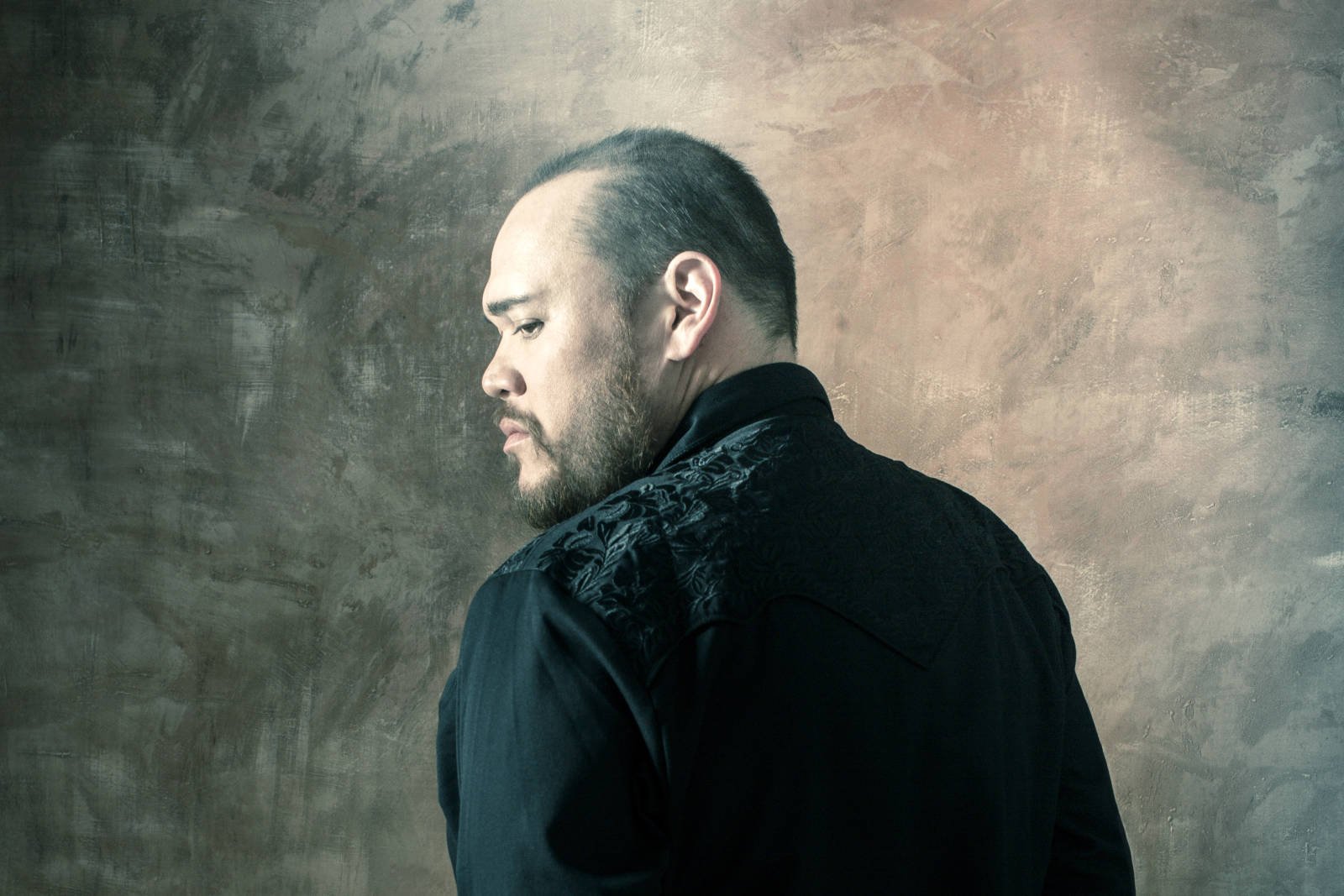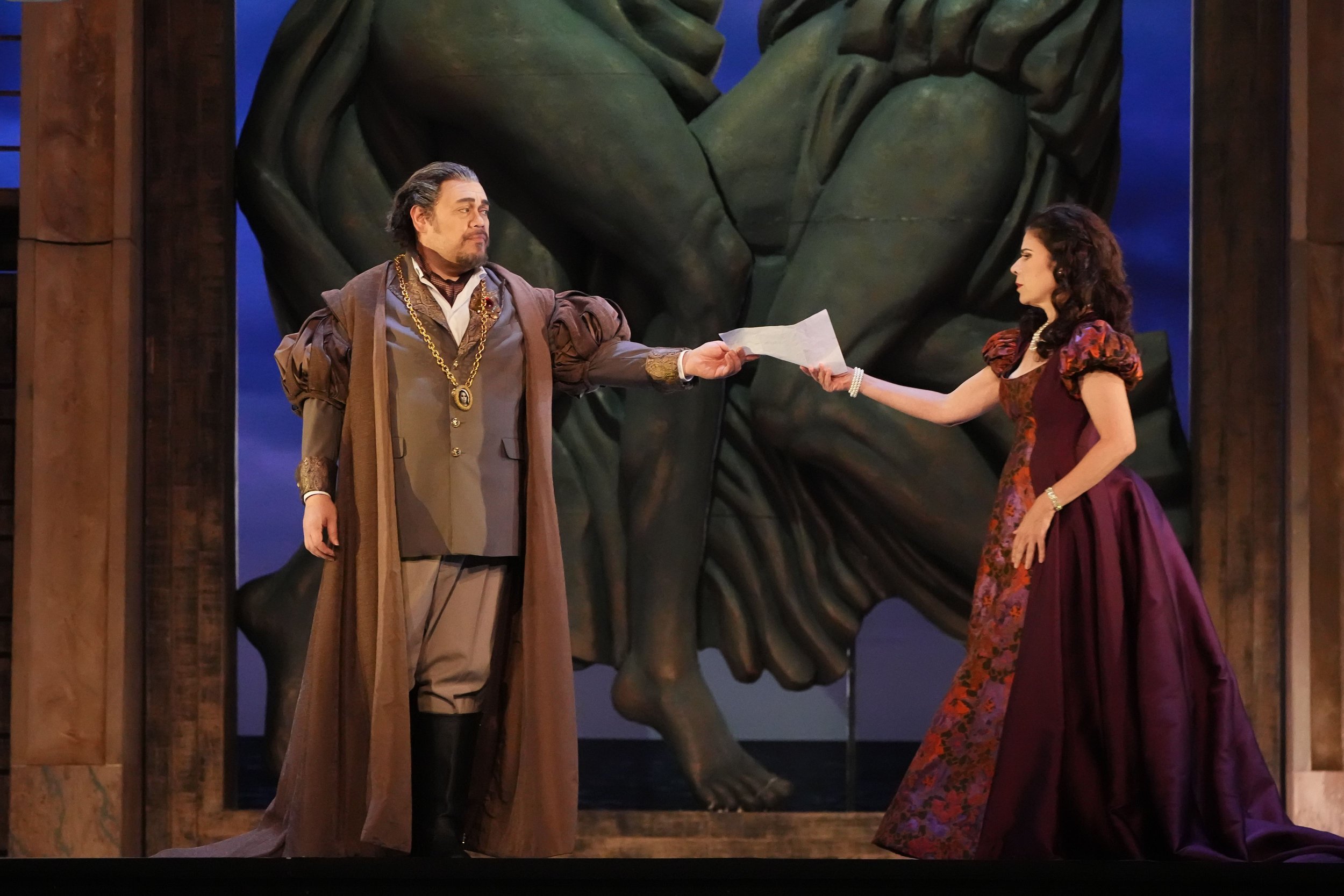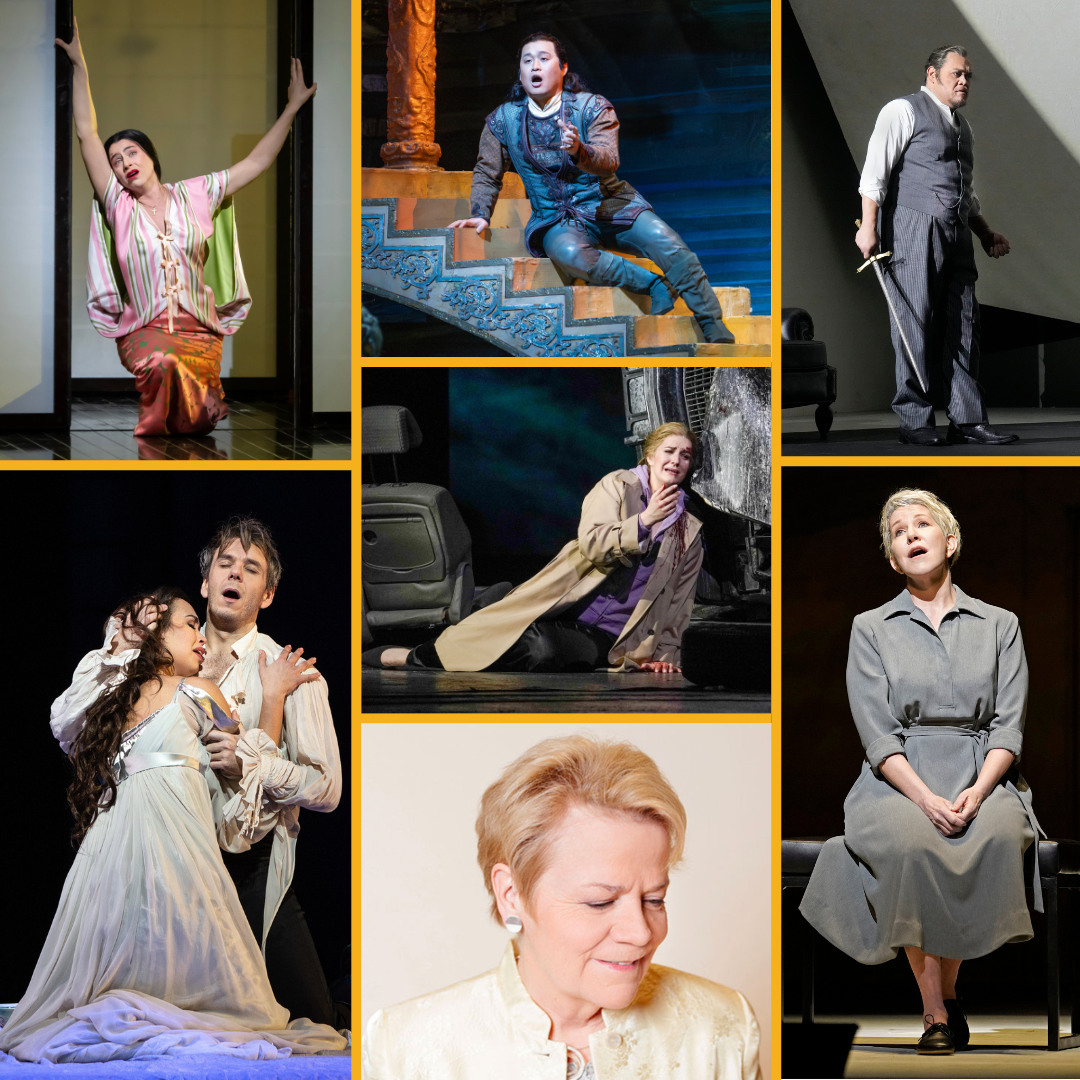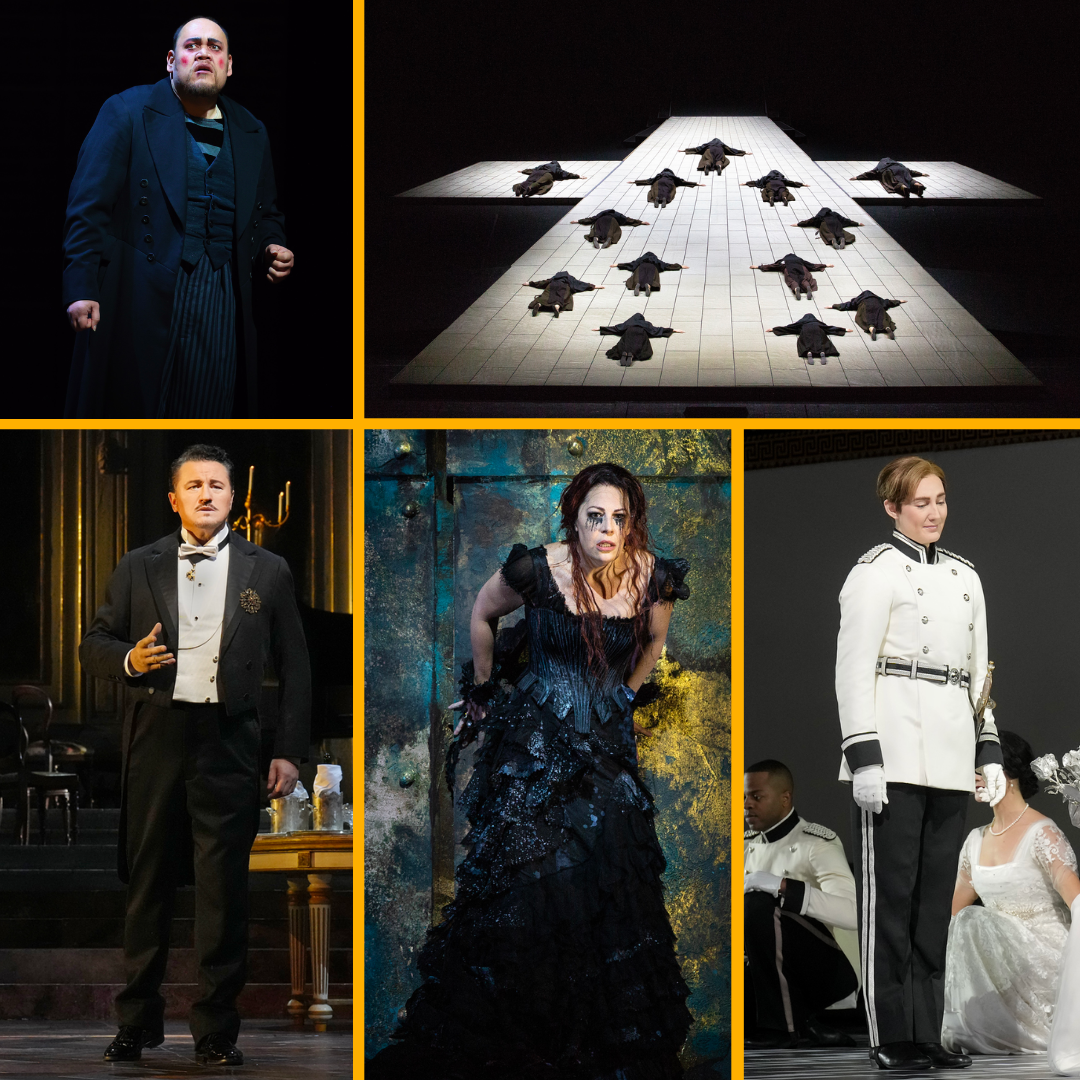An Interview With Quinn Kelsey
Quinn Kelsey (Dario Acosta)
Quinn Kamakanalani Kelsey sang in his first opera, Verdi’s Aida, at 13 years old, as a 1st tenor in the priests’ chorus. 34 years later, he is the king of Verdi baritones and singing the Ethiopian king Amonasro in the Met’s starry new production of Aida. Even the reviewers who panned the production heaped praise on Quinn, with the Washington Post saying that he “made an Amonasro of enchanting depth.” He took the time out of his crowded schedule to answer questions before Aida opened on New Year’s Eve.
This interview has been lightly edited for length and clarity.
Quinn’s path to opera superstardom began with the most relatable of desires: applause. Music was a strong force in his life from the beginning, as both his parents are singers (and met singing a duet at the University of Hawaii at Manoa), and it was inevitable that he become a musician. “By the time I started college, most of my music experience was choir music. But the music that attracted me the most as a career pursuit was opera. And in singing in the opera chorus, I began to long for the solo bows that the principals took, rather than the group bows of the chorus. And there was only one way to get those solo bows.” At 13, his voice had not yet naturally dropped to that resonant, fruity sound that is instantly recognizable to anyone who has heard him before. When it did drop, it was to bass, the lowest of male voices, “and then my voice settled to baritone with all the training.”
Quinn as Falstaff at the Santa Fe Opera (Curtis Brown)
Quinn started out his professional career singing a wide variety of smaller baritone parts, like Peter in Humperdinck’s Hansel and Gretel and Schaunard in La Bohème. As his star rose, it became evident that his voice was made for the great Verdi roles like Macbeth and Rigoletto, the latter of which is now his signature role. Verdi’s baritone roles are an ideal fit for his voice and ability to craft complex characters, and nowadays, these roles fill his schedule. Not many comedic parts come a Verdi baritone’s way, since the failure of Verdi’s first comedy (Un Giorno di Regno) dissuaded him from writing another until the end of his career, so Quinn seizes them when he can. In 2022, he took on Shakespeare’s rotund, larger-than-life Sir John Falstaff at the Santa Fe Opera, declaring that “the opportunity for comedy in Falstaff is definitely the best part. And playing the lead in a comedic show makes it even better! Playing at being the target of the jokes in a show is just as fun for me as delivering them.” Falstaff is the target of no shortage of jokes and pranks, from being stuffed in a sweltering basket of dirty laundry to getting tossed in the River Thames to mercilessly teased by a horde of villagers disguised as woodland fairies, so it must have been delightful for Quinn.
Quinn Kelsey and Ana María Martínez in Simon Boccanegra (Steven Pisano/Opera Philadelphia)
Quinn and his partner, mezzo-soprano Deanna Pauletto, welcomed their Capital-A Adorable daughter, Leonora Kawaihō’olaokalaniki’eki’e (or Lai Lai) Kelsey in January 2023. In a surprise for both him and his fans, becoming a father hasn’t changed his take on Rigoletto, the tragic jester who tries and fails to protect his daughter from the world. “I expected the coming of my daughter to indeed drastically change my interpretation. But not so much yet, funny enough. Actually... it was the interaction of Boccanegra and Amelia [in Simon Boccanegra] at the moment he realizes she IS in fact his child, all grown up, at the beginning of the 2023/24 [Opera Philadelphia] season that really hit me in a way it never would have otherwise.”
Later that year, Quinn won the inaugural Girl of the Golden Met Award for Best Baritone for his Rigoletto at the Met. In 2024, he won Best Baritone again, this time for playing Count Anckarström (or Renato, depending on the production) in Un Ballo in Maschera. “I was QUITE honored that Girl of the Golden Met readers voted for me in the last two seasons!!” Quinn said. “I hope to keep their favor for seasons to come!!” The only prediction I can make is that he is unlikely to lose his devoted fanbase in the foreseeable future, though one need not be an oracle to come to that conclusion.
Quinn and Jordan Shanahan in Rigoletto (Nina Wurtzel/Met Opera)
When Quinn reprised his Rigoletto at the Met earlier this season, it was his third outing in Bartlett Sher’s production set in Weimar Germany but his first time singing with a fellow Hawaiian. Baritone Jordan Shanahan made his debut singing Monterone, the wronged noble who curses Rigoletto. “Working with Jordan was a huge homecoming of sorts,” said Quinn, who has been friends with Shanahan since their shared youth in Honolulu. “Back in school, I don't think we ever contemplated the possibility of being on the same stage in the same show. Back then, we knew it would probably never happen [because] there aren't that many operas with more than one baritone.” Shanahan shone in the performance I attended last fall, and his scene with Quinn was one of the highlights of the evening. Fingers crossed that the two baritones get more opportunities to work together.
Asked what he would tell Maestro Verdi if he could, Quinn says simply and sincerely, “Thank you. Thank you for building so much into the baritone characters in your operas. It's been both a challenge and a rite of passage to be able to study the style and succeed in making so many of those roles my own to the point that I've been invited to some of the biggest companies in the world to sing them!”
Quinn in Tosca (Marty Sohl/Met Opera)
Quinn’s sole non-Verdi role this season was the villainous Baron Scarpia in Puccini’s Tosca, which was broadcast in cinemas worldwide and will make it to Met Opera on Demand later this year. “He's evil. Of course. He is immediately in a position of power. And it's obviously a position he abuses for the power he's more than happy to blow out of proportion. He intimidates. He muscles. He commands. To an evil extreme.” Scarpia has a strong claim on the title of Most Evil Operatic Villain, but Quinn still finds a way to make him “very much so” a multidimensional character. “There's also a question of whether or not he actually has romantic feelings for Tosca. Or if he just has an appetite for her. Many have wondered if he's a sadist. That is a huge possibility, I think. He doesn't flinch when Cavaradossi screams out in pain from the torture Scarpia commands [to] be inflicted on him. Puccini and his librettist write the character as one, in my eyes, who doesn't ever change his mind. One for whom the torture of the tenor and the grief of the soprano will never cause him to rethink his actions. He's a bad man to the very end!”
The slippery charm he brought to Scarpia depended greatly upon Quinn’s signature legato: connecting notes in a smooth and unbroken way. It is much more difficult than it sounds, with even Quinn admitting that “this is not a simple thing.” He emphasizes that “understanding how the language functions in singing” is crucial. “When I sing Italian, I make sure I over-enunciate the sung text and, in essence, knit each word together into one seamless phrase. And there are specific ways I elongate, at times, final consonants from the end of one word to the beginning of the next. Interestingly enough, this concept actually saves me air. I don't use AS much air when I work to connect all the words together when I sing in this way. The text doesn't seem so chopped up. Instead, it almost feels like a run-on sentence of sorts.” I can confirm that his Italian diction is beautiful.
Quinn and Angel Blue in Aida (Ken Howard/Met Opera)
To return to Aida, this is Quinn’s third Amonasro at the Met and his second Live in HD Aida (this one will be in cinemas on January 25, plus two encore screenings). “I believe [Amonasro] is a critical part of the storytelling,” Quinn said. “If he never shows up, the opera remains kind of an elongated love story. No real conflict.” Indeed, and if he hadn’t gloated to Radamès that he had the Egyptians’ military secret, nobody would have died and everything would have been hunky-dory. Quinn told the Associated Press in 2018 that “I have to balance being the loving, concerned parent with the fact that I have this ulterior motive. I'm basically trying to do what any ruler of a people would do." If that includes calling Aida “slave of the Pharaohs,” then poor princesses!
Of the future of opera, he makes no pretense that it’s “all sunshine and roses. In Europe, it's in their blood… but in North America, it's NOT a part of our culture. But I'm so pleased in all the ways folks have continually worked so hard to promote and support this art form. And because we aren't taught it as part of our history in school, we all must work doubly hard to promote it to future generations! Classical music and opera just aren't what's considered “cool" in the eyes of young people. So in order for the art form to have the future we all want, we must strive to reach these younger generations to welcome them to the magic of the opera universe [and] keep their eyes open to opera and classical music. And the ways pop culture evolves only makes it harder. But it's up to us to keep that momentum going. To keep their attention so they don't forget what a special thing it is to come to a show and be taken to a place that transcends their daily lives. Allows them to experience emotions in a live setting that doesn't hit the same as sitting at home in front of the TV. To share those experiences with others. Share those emotions.”
Even being at the top of the opera world, there are still many mountains he aims to climb. “I want to sing ALL roles for the baritone. I DO know I can afford to wait on roles like Nabucco. Or heavier roles like Wotan [in Wagner’s Ring Cycle].” His non-Verdi wishlist includes roles like Jack Rance in The Girl of the Golden West, the Dutchman in Die Fliegende Holländer, and Gerard in Andrea Chénier. “I'm also interested in Russian baritone repertoire. Onegin. Yeletsky. There's an obscure Tchaikovsky opera called The Enchantress, in which the baritone has a gorgeous aria… But I wouldn't discount Don Giovanni, Almaviva in Le Nozze di Figaro, or Escamillo in Carmen! I performed these roles, but only ever did them as a young artist.” He’s also performed with almost every major singer currently active, save for “Jonas Kaufmann. I want to share in the supreme artistry he brings to each and every role he performs.” Let’s hope we get to see these two share the stage soon.
Quinn doesn’t have “so much experience in modern works… [but] for the right project, [he]’d definitely entertain it.” Now, at last, the right project has come along — indeed, the perfect project for the proudly Hawaiian baritone. In the spring of 2025, Quinn will lead the first-ever professional Hawaiian opera, Herb Mahelona’s The Sheltering Tree, which is “set in the time of the third king of the Hawaiian monarchy from the early to mid 19th century.” Quinn plays Timoteo Ha‘alilio, the Royal Secretary to the aforementioned king, Kamehameha III. The Sheltering Tree is a commission of the Hawai‘i Opera Theatre in Honolulu, and features hula, Hawaiian language, and chant.
Quinn in Macbeth at the Canadian Opera Company (Michael Cooper)
In 2026, Quinn will open the Met's season for the first time, singing the title role of Macbeth, which he debuted in 2023 at the Canadian Opera Company. “The Met is, like Opera News [now tragically defunct], a mark of success in one's own career. To be hired to perform on that stage means you've reached a huge goal in your career as a professional artist! But also, it's such a wonderful place to work, full of a ton of people who understand the high standard that comes with being the biggest company in North America and one of the biggest in the world. And you feel this in every corner of the company. And it's my opinion that you must also uphold this standard [because] the singers are the biggest representatives of that standard and the company!” It’s safe to say that Quinn is doing his part to uphold that standard.
Aida runs through May 5. Quinn is Amonasro through January 25.










